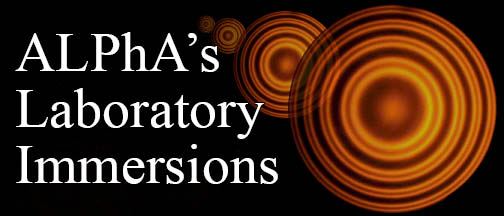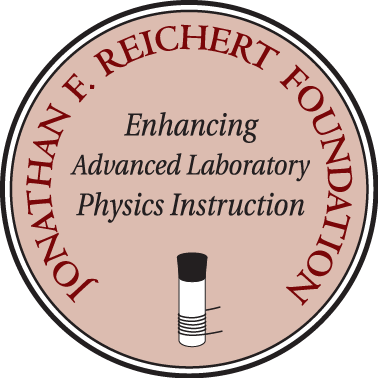- Home
- What We Do
- Laboratory Immersions
- Immersions 2025
- Imm2025Reed_Python
 This
two-day workshop will be held on the Reed College campus in the Physics
Department’s Advanced Laboratory and will be of interest to professors seeking
to include Python-based training in their instructional laboratory curricula.
Workshop participants will learn to write Python programs that control a
USB-interfaced multifunction DAQ device, then use these Python skills to
create several computer-based instruments, including a digital oscilloscope,
waveform generator, digital thermometer, and spectrum analyzer. Attendees will
also learn Python-based IEEE 488.2-interfacing skills as they control a
digital multimeter.
This
two-day workshop will be held on the Reed College campus in the Physics
Department’s Advanced Laboratory and will be of interest to professors seeking
to include Python-based training in their instructional laboratory curricula.
Workshop participants will learn to write Python programs that control a
USB-interfaced multifunction DAQ device, then use these Python skills to
create several computer-based instruments, including a digital oscilloscope,
waveform generator, digital thermometer, and spectrum analyzer. Attendees will
also learn Python-based IEEE 488.2-interfacing skills as they control a
digital multimeter.
The workshop will be based on the book “The Python-Based Laboratory: A Hands-On Guide for Scientists and Engineers” (Oxford University Press). Prior to the workshop, participants will be provided with a copy of the book and asked to devote 15 to 20 hours of self-study of selected chapters to learn relevant Python programming skills. Then, at the workshop, they will write and use Python programs to control data-acquisition hardware, including a USB-interfaced multifunction DAQ device and a stand-alone IEEE-488.2 interfaced digital multimeter. By the workshop’s end, each participant will have the experience necessary to create a Python-based instructional laboratory teaching unit.
No prior Python programming background is required. Activity during the workshop will be self-paced, allowing participants to explore individual interests in hardware control. Ideally, Python programming will be done on each attendee’s own Windows laptops, but Reed’s Windows PCs will also be available. If desired (and after consulting with John Essick about compatibility with the workshop materials), attendees can bring their own USB-interfaced multifunction DAQ devices to program at the workshop. However, microcontrollers (e.g., Arduino, Raspberry Pi) are outside the scope of this workshop.
Cost estimate for adoption: The Python programming language is, of course, free. Affordable multifunction DAQ device options include the NI USB-6002 ($630) and Measurement Computing Corporation USB-202 ($160). For the workshop, the DMM used obeys the HP 34401A command set; such instruments range in price from $750 to $2000. Standard test equipment (dc voltage source, function generator, voltmeter, oscilloscope) is also required, which hopefully adaptors already have in their advanced instructional laboratory.
Host and Mentor:
 John Essick is an emeritus professor at Reed College with research
interests in the optoelectronic properties of semiconductors. Since 1993, he
has taught computer-based experimentation skills as part of Reed College’s
junior-level Advanced Laboratory course and, along with his senior thesis
students, used these skills to carry out many research projects. Essick is the
editor of the Instructional Laboratories and Demonstrations section of the
American Journal of Physics and is author of “The Python-Based Laboratory: A
Hands-On Guide for Scientists and Engineers” (Oxford University Press).
John Essick is an emeritus professor at Reed College with research
interests in the optoelectronic properties of semiconductors. Since 1993, he
has taught computer-based experimentation skills as part of Reed College’s
junior-level Advanced Laboratory course and, along with his senior thesis
students, used these skills to carry out many research projects. Essick is the
editor of the Instructional Laboratories and Demonstrations section of the
American Journal of Physics and is author of “The Python-Based Laboratory: A
Hands-On Guide for Scientists and Engineers” (Oxford University Press).
Please note that the Jonathan F. Reichert Foundation has established a grant program
to help purchase apparatus used in Laboratory Immersions. Limitations
and exclusions apply, but generally speaking the Foundation may support
up to 50% of the cost of the required equipment.




